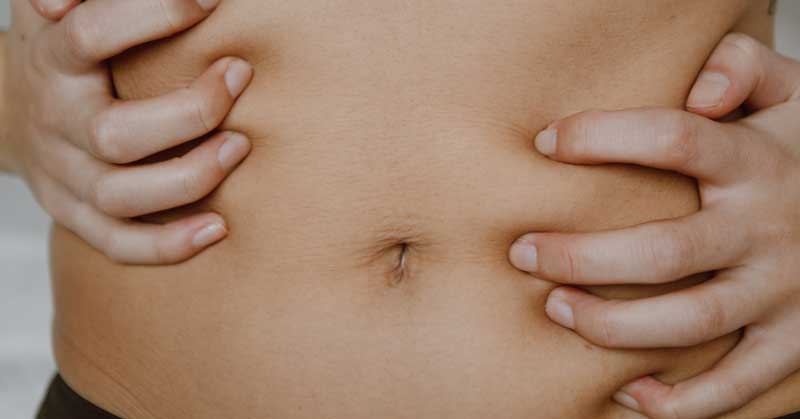Insulin resistance is a term that is popping up more and more in the world of health and wellness, and it’s something that many women can relate to. It is estimated that as much as 75% of the Dutch population is insulin resistant. But what exactly is insulin resistance and why is it important to combat it?
What is insulin resistance?
Insulin is a hormone produced in the pancreas that plays a crucial role in regulating our blood sugar levels. When we eat food, our blood sugar levels rise, and insulin is released to transport the sugar from our blood into our cells, where it can be used as energy. Insulin resistance occurs when our cells no longer respond properly to insulin, causing sugar to remain in our blood and leading to higher blood sugar levels.
How do you recognize insulin resistance?
- Persistent fatigue: Do you always feel tired even after a good night’s sleep? Do you experience drowsiness after eating? This could be a sign of insulin resistance because your cells aren’t getting the energy they need.
- Persistent fatigue: Do you always feel tired even after a good night’s sleep? Do you experience drowsiness after eating? This could be a sign of insulin resistance because your cells aren’t getting the energy they need.
- Persistent cravings for sweets: If you have an unstoppable craving for sweets, this may be due to fluctuations in your blood sugar level, which in turn indicates insulin resistance.
- Acne/impure skin
- Irregular periods: Insulin resistance disrupts the menstrual cycle and even leads to polycystic ovary syndrome (PCOS), a common cause of infertility.
- Dark skin spots: Some people with insulin resistance develop dark spots on their skin, especially around the neck and armpits. This is called acanthosis nigricans.
- Blurred vision / your vision is deteriorating
- Moody, quick to anger
- Skin tags on the skin:, especially on the neck, armpits, groin or eyelids. Skin tags are also called wild meat, they are often light brown and feel soft.

Why is combating insulin resistance important for women?
Insulin resistance can be specifically challenging for women. Hormonal changes, such as those during the menstrual cycle, pregnancy and menopause affect the body’s insulin sensitivity. In addition, women may be susceptible to hormonal conditions such as polycystic ovary syndrome (PCOS), which can worsen insulin resistance. Additionally, insulin resistance can lead to weight gain, which in turn can contribute to other health problems such as type 2 diabetes and heart disease.
Five important suggestions for insulin resistance
- Eat a balanced diet and pay attention to your meal frequency: nutrition plays a crucial role in managing insulin resistance. Try to eat foods with a low glycemic index, such as whole grains, legumes, vegetables and proteins. Limit consumption of sugary drinks, processed foods and refined carbohydrates, such as white bread and white rice. You reduce insulin resistance by adhering to 3 eating moments every day so that you do not always ‘stimulate’ your pancreas to release insulin to regulate your blood sugar.
- Regular exercise can improve insulin sensitivity. Try to exercise at least 30 minutes a day, whether it’s walking, cycling, yoga or any other activity you enjoy. Strength training helps build muscle mass and increase insulin sensitivity. Preferably exercise or train before a meal.
- Stress management: Chronic stress can worsen insulin resistance. Try to reduce stress through relaxation techniques such as meditation, breathing exercises, or pursuing a hobby that brings you joy. Adequate sleep is also essential for stress management and overall health.
- Weight management: Maintaining a healthy weight can help reduce insulin resistance. If you are overweight, even modest weight loss can produce significant improvements in insulin sensitivity. If necessary, consult a dietitian or health professional to help you create an appropriate weight management plan.
- Get enough sleep: Sleep at least 7 to 8 hours a day. Sleep deprivation increases your craving for sugar, which increases your blood sugar.
It’s important to remember that insulin resistance is reversible and small lifestyle changes can make a big difference. By paying attention to your diet, exercise, stress levels and weight, you can take back control of your health and manage insulin resistance.
Orthomolecular advice for insulin resistance
- Magnesium plays a crucial role in insulin sensitivity and regulating blood sugar levels. A dosage of at least 300 mg per day is recommended. Natural food sources such as green leafy vegetables, nuts and seeds are also rich in magnesium.
- Chromium supplements: Chromium is a trace element that can contribute to better glucose control. It can improve insulin sensitivity. You can also find chromium in whole grain products, vegetables and fruit.
- Omega-3 fatty acids, such as those found in fish oil, can reduce inflammation and improve insulin sensitivity.
- Berberine may help regulate blood sugar levels and improve insulin sensitivity.
- There is growing evidence that healthy intestinal flora can contribute to better insulin sensitivity. Consider taking probiotic supplements or eating fermented foods such as yogurt, kefir and sauerkraut.
- Cinnamon can help regulate blood sugar levels. Add some cinnamon to your daily diet, for example to oatmeal, Greek yogurt or fruit.
So ladies, if you recognize yourself in one of the signs, you can tackle insulin resistance with the right approach and orthomolecular support. By paying attention to your diet, exercise, stress levels and weight, you can stabilize your blood sugar and prevent many health problems. Take care of yourself!





